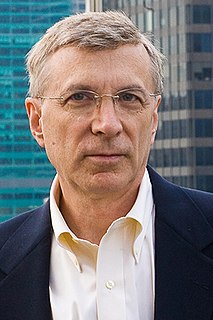This page is based on this
Wikipedia article Text is available under the
CC BY-SA 4.0 license; additional terms may apply.
Images, videos and audio are available under their respective licenses.
Fischer is a German surname, derived from the profession of the fisherman. The name Fischer is the fourth most common German surname. The English version is Fisher.

Kreuzlingen is a municipality in the district of Kreuzlingen in the canton of Thurgau in north-eastern Switzerland. It is the seat of the district and is the second largest city of the canton, after Frauenfeld, with a population of about 20,800. Together with the adjoining city of Konstanz just across the border in Germany, Kreuzlingen is part of the largest conurbation on Lake Constance with a population of almost 120,000.
The German word Müller means "miller". It is the most common family surname in Germany, Switzerland, and the French départements of Bas-Rhin and Moselle and is the fifth most common surname in Austria. Other forms are "Miller" and "Möller". Of the various family coats of arms that exist, many incorporate milling iconography, such as windmills or watermill wheels.
Medard Boss was a Swiss psychoanalytic psychiatrist who developed a form of psychotherapy known as Daseinsanalysis, which united the psychotherapeutic practice of psychoanalysis with the existential-phenomenological philosophy of friend and mentor Martin Heidegger. During his medical studies in Vienna, he initiated his psychoanalytic training by undergoing some psychoanalytic sessions with Sigmund Freud, an analysis he later continued at length in Zurich with Swiss psychoanalyst Hans Behn Eschenburg.
Struve is a surname. Notable people with the surname include:
Ellen West (1888-1921) was a troubled patient of Dr. Ludwig Binswanger who suffered from anorexia nervosa and possibly other mental illness. She became a famous example of existential analysis who committed suicide at age 33 by poisoning.

Ludwig is an Old High German given name. Etymologically, the name can be traced back to the Germanic name Hludwig, composed of Hlud or Hluth meaning "famous", and Wig meaning "war". Nicknames are Ludva, Ludia, Luděk, Viky.
The World Figure Skating Championships is an annual figure skating competition sanctioned by the International Skating Union in which figure skaters compete for the title of World Champion.
The World Figure Skating Championships is an annual figure skating competition sanctioned by the International Skating Union in which figure skaters compete for the title of World Champion.
Daseinsanalysis is an existentialist approach to psychoanalysis. It was first developed by Ludwig Binswanger in the 1920s under the concept of "phenomenological anthropology". After the publication of "Basic Forms and Perception of Human Dasein", Binswanger would refer to his approach as Daseinsanalysis. Binswanger's approach was heavily influenced by the German philosopher Martin Heidegger and psychoanalysis founder Sigmund Freud. The theology of daseinsanalysis is centered on the thought that the human Dasein is open to any and all experience. That the phenomenological world is experienced freely in an undistorted way. This way initially being absent from meaning, is the basis for analysis. This theory goes opposite to dualism in the way that it proposes no gap between the human mind and measurable matter. Subjects are taught to think in the terms of being alone with oneself and grasping concepts of personhood, mortality and the dilemma or paradox of living in relationship with other humans while being ultimately alone with oneself. Binswanger believed that all mental issues stemmed from the dilemma of living with other humans and being ultimately alone.
Ludwig is a surname of German origin. It is derived from the Old High German given name Ludwig, which means "famous warrior". As a surname, Ludwig may refer to:
Jacques Schotte was a Belgian psychiatrist and psychoanalyst, co-founder, in 1969, with Antoine Vergote and Alphonse De Waelhens of the Belgian School of Psychoanalysis.
Counterdependency is the state of refusal of attachment, the denial of personal need and dependency, and may extend to the omnipotence and refusal of dialogue found in destructive narcissism, for example.
Home Guardsman Bruggler is a 1936 German war film directed by Werner Klingler and starring Ludwig Kerscher, Franziska Kinz and Rolf Pinegger. It is set in the Tyrol during the First World War and depicts the actitivies of the local home guard unit. It was based on a novel by Anton Graf Bossi-Fedrigotti, itself based on the diary of the titular Anton Bruggler.
The following is a list of events, births, and deaths in 1852 in Switzerland.

Otto Saly Binswanger was a German-American chemist and toxicologist.
Otto Binswanger (1852–1929) was a Swiss neurologist, psychiatrist, and professor and cousin of Otto Saly Binswanger.





